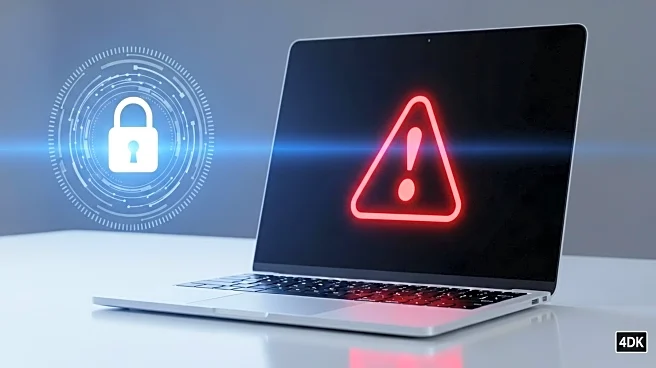What's Happening?
A new phishing campaign has been identified, involving the deployment of the MostereRAT trojan to compromise Windows systems. According to Infosecurity Magazine, threat actors are sending malicious emails that appear to be legitimate business inquiries. These emails contain links that, when clicked, download a Word file with a concealed archive. This archive prompts the opening of an embedded executable containing the MostereRAT trojan. The trojan is capable of keylogging, gathering system data, downloading and executing various payloads, running remote access tools, and establishing hidden admin accounts. It evades detection by avoiding antivirus traffic, deactivating security systems, and ensuring secure command-and-control communications. James Maude, Field Chief Technology Officer at BeyondTrust, noted that while the malware uses creative techniques to evade detection, it follows a common pattern of exploiting overprivileged users and endpoints without application control.
Why It's Important?
The rise of sophisticated malware like MostereRAT highlights the increasing threat to cybersecurity, particularly for businesses and individuals using Windows systems. The ability of this trojan to evade detection and establish hidden admin accounts poses significant risks, potentially leading to unauthorized access to sensitive data and systems. This development underscores the need for enhanced cybersecurity measures, including robust application control and user privilege management. Organizations and individuals stand to lose valuable data and face operational disruptions if such threats are not adequately addressed. The campaign also reflects the evolving tactics of cybercriminals, who are leveraging advanced techniques to bypass traditional security measures.
What's Next?
Organizations are likely to increase their focus on cybersecurity strategies to counteract threats like MostereRAT. This may involve investing in advanced security solutions that can detect and prevent such sophisticated malware attacks. Cybersecurity firms and experts may also work on developing new tools and techniques to identify and neutralize threats that exploit overprivileged users and endpoints. Additionally, there may be increased collaboration between cybersecurity agencies and businesses to share intelligence and best practices for mitigating these risks.
Beyond the Headlines
The deployment of MostereRAT and similar malware raises ethical and legal concerns regarding cybersecurity practices and the responsibility of organizations to protect user data. As cyber threats become more advanced, there may be calls for stricter regulations and standards to ensure that businesses implement adequate security measures. This situation also highlights the importance of cybersecurity education and awareness among users to recognize and avoid phishing attempts.








